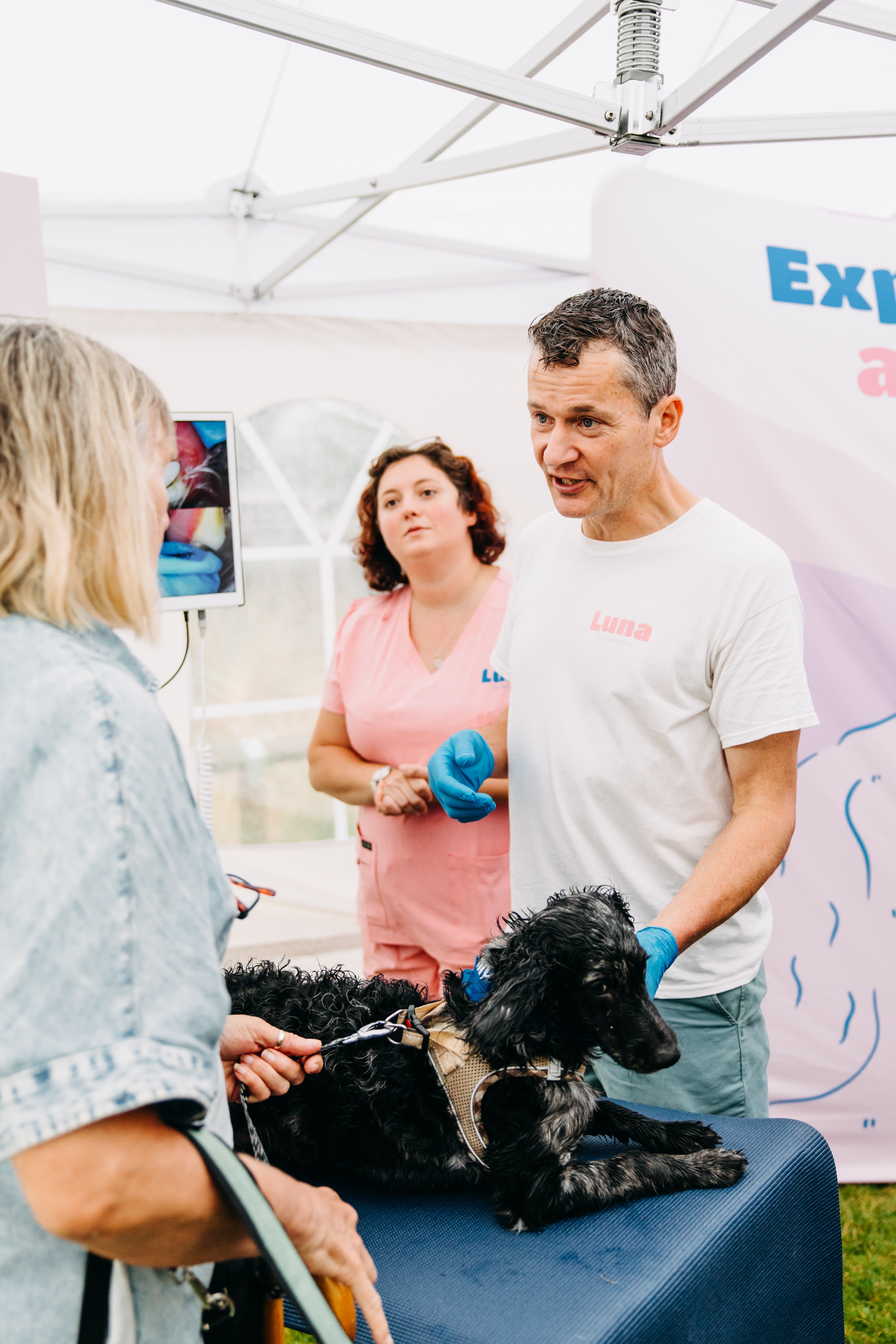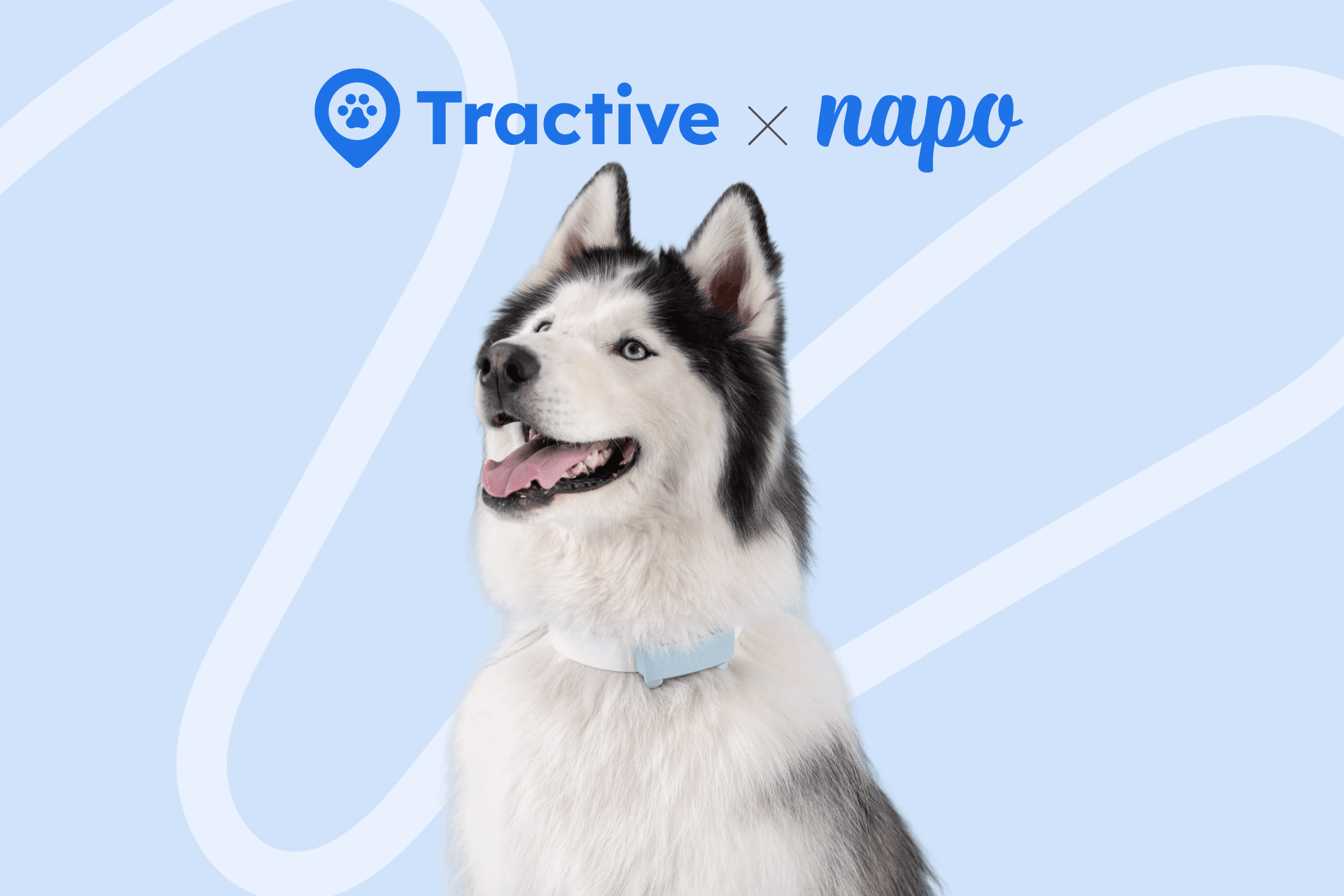Dog diarrhoea: When should you talk to your vet about runny poop?

Summary
Many cases of diarrhoea in dogs are mild and will get better at home within a few hours. But, diarrhoea can be a symptom of another illness so it’s important to check with your vet. If your dog or puppy shows other symptoms like vomiting, bloody poo, or general illness you must take your pup for a check-up.
Diarrhoea in dogs is very common, and can be a problem in itself, or symptomatic of something else. You’d be hard-pressed to find a pup that hasn’t had the runs at least once. To help you understand what causes this problem, and how you could prevent it, Louisa the Vet has answered frequently asked questions about dog diarrhoea.
Just remember that if your pup does have diarrhoea, ask your vet for advice. Because diarrhoea can be a symptom of another illness, it’s important to rule out potential causes for it.
How common is diarrhoea in dogs?
Diarrhoea is one of the more common clinical signs we see in dogs! We see cases every day, largely because a lot of dogs will put almost anything in their mouth. Most of the cases require simple or sometimes no treatment at all, however we do see some cases that require more intensive care.
Is diarrhoea common in puppies?
It is quite normal for puppies feeding from their mothers to have soft poo as their diet will mostly contain milk. However, by the time they are being fed puppy food exclusively (e.g. when they are fully weaned and have left their mother) we should be seeing consistently formed faeces, that's easy to pick up.
Soft poo in puppies is very common and can sometimes be attributed to diet change or even the change in environment when going to their new home. However, diarrhoea in puppies is not normal and could be a sign of something underlying which needs to be addressed, such as parasites.
How long does dog diarrhoea last?
How long is a piece of string! Most cases of diarrhoea should start to resolve within 1-3 days with appropriate treatment, such as a gastrointestinal prescribed diet. However, in some cases dog diarrhoea can last much longer, and even become ‘"chronic". It could last for weeks or months. It really depends on the cause, and there are lots of causes.
Is runny poop a serious problem for dogs?
Most of the time a bout of dog diarrhoea is mild, and often triggered by something inconspicuous, resolves quickly, and is generally normally harmless. However, diarrhoea can be caused by more harmful issues. And the resultant diarrhoea itself can lead to severe dehydration and weight loss if it isn’t treated.
Is runny poop a serious problem for puppies?
As puppies are smaller and may not have developed their full immunity yet, they are generally more susceptible to illness, including diarrhoea. Puppies can dehydrate and become unwell much more quickly compared to adult dogs, even with a relatively mild bout of diarrhoea.
In some cases where the puppy diarrhoea is profuse and constant, for example, with parvovirus or certain parasites such as a giardiainfection, they can become acutely sick and dehydrated from diarrhoea within hours, which can be life threatening.
So if your puppy gets a poorly tummy, you should contact your vet for advice.
When should you see a vet if your dog or puppy has runny poop?
A mild bout of acute diarrhoea doesn’t necessarily warrant concern, as long as your pet is still bright, playful, and still wants to eat and drink. However, if their diarrhoea doesn’t resolve, or it worsens, you should go to the vet.
If your dog’s diarrhoea ever contains blood, or they start vomiting, or they seem generally unwell, then you should see a vet straight away. Diarrhoea that lasts weeks (even if your pet is bright and well,) also warrants a vet visit as this is certainly not normal.
Soft poo that is formed (e.g. you can still pick it up,) generally isn’t as much of a concern compared to poo that is watery, bloody, or faeces that you cannot pick up.
If in doubt it is always advised to visit a vet even, if that is just for reassurance, especially with puppies.
What’s the difference between loose stools and diarrhoea in dogs?
Funnily enough, you can actually "score" your dogs’ faeces. Consistency can vary from being hard and dry, to very loose or watery. The ideal poo should be a play-doh consistency, being formed but soft and easy to pick up and dispose of.
A loose stool suggests that the faeces is softer than normal. It may leave a residue on the ground when you try to pick it up. And if you can pick it up, it might just lose form and fall apart. Meanwhile, diarrhoea means that the faeces is formless and impossible to pick up.
What can cause diarrhoea in dogs and puppies?
There are lots of causes of diarrhoea in dogs, and so the list would be exhaustive. Keeping it simple, the most common causes of diarrhoea include:
-
dietary indiscretion: dogs eating things that they shouldn’t
-
dietary insensitivities (being ‘allergic’ to certain components of their normal food
-
parasites: especially in puppies as they can pick these up from their mothers without you knowing it
-
bacterial or viral infections: such as parvovirus
-
foreign bodies: eating things that cannot pass through their system
-
Disease to your dog’s liver, kidney, pancreas, or adrenal glands: These can also cause diarrhoea symptoms, however these are not as common.
How to stop diarrhoea in dogs
Since many cases of diarrhoea in dogs are caused by them eating things they shouldn’t, try to control your pet scavenging by watching them on walks. Supervise them when they’re chewing toys or treats, and dispose of food properly in closed bins so they can’t get to it. Feed your pup an appropriate controlled and balanced diet recommended by your vet or veterinary nurses.
What treatment should you go to a vet for?
The most common treatment for an acute episode of diarrhoea is often a probiotic paste and a specially formulated gastrointestinal diet. You may also be advised to deworm your pet.
Can you treat dog diarrhoea at home?
Many cases of diarrhoea are mild and will get better on their own at home with feeding smaller more frequent meals. Assuming their meals are balanced and complete.
If your dog is still very bright, you should be able to collect the probiotic paste and gastrointestinal food over the counter at your vets to start their treatment at home if you wish. However, it is always worthwhile making sure this is the appropriate treatment for your dog by checking in with your vet first.
Should you starve a dog with diarrhoea?
Starving your pet used to be the advice followed by feeding a bland diet. However, advice changes, and this recommendation is outdated.
My current recommendation is to instead continue feeding your pet using a specific gastrointestinal diet, in smaller, more frequent meals.
These foods are readily available and are complete, meaning they contain all the nutrients your pet needs whilst trying to recover from their bout of diarrhoea. Compared to the poor nutrient quality of a bland diet like chicken and rice.
Even though diarrhoea is common, it certainly isn't normal. If you're worried about your dog or they show any symptoms of illness, ask your vet for advice.
Jump to
Making pet dental care easier with Luna

Making pet dental care easier with Luna
Blog
Napo & Tractive launch partnership offering pet parents free GPS and health devices

Napo & Tractive launch partnership offering pet parents free GPS and health devices
Blog
Why isn’t my cat using the litter tray?

Why isn’t my cat using the litter tray?
By Rachel Rodgers MSc, Head of Training at Napo Pet Insurance
Blog